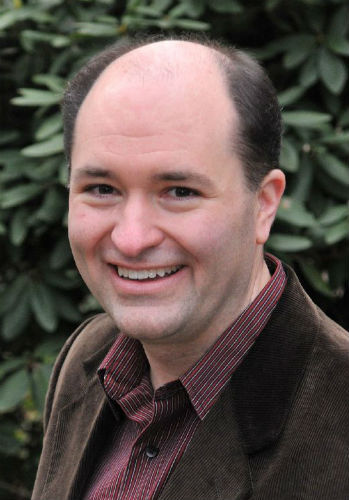
Dr. Wayne Lutters is an Associate Professor of Information Systems and the Graduate Program Director for Human-Centered Computing. He serves as an iCubed Faculty Mentor for first year Information Systems and Business Technology Administration students. Dr. Lutters’ research is at the nexus of human computer interaction, social media, and knowledge management. His lab specializes in the study of information technology-mediated work to better design and evaluate collaborative systems.
What is your mentoring philosophy? One of the most important components of the college experience is self-discovery. The most successful students use their time at UMBC to understand their own passions, strengths, and weaknesses. They are honest in their self-evaluation and strategic in self-improvement – working hard toward realizing their ideal future self. UMBC provides a world-class collection of resources to help every student on their journey. I view my role as a guide -- not as a static signpost to degree requirements, but as someone who can ask challenging questions, listen carefully, and direct students toward new opportunities.
As a graduate of a small liberal arts college, I am a firm believer in the value of a broad undergraduate education. This is a vision enthusiastically shared by UMBC. Even within the tightly regimented trajectories for STEM majors, there are ample opportunities for students to get out of their comfort zones and challenge themselves with new experiences. College affords a rare opportunity in life to explore boldly, both inside and outside of the classroom. My most disheartening advising moments are when students cannot visualize their time at UMBC as more than a four-year trudge through required coursework. Few things are more exciting than searching through a course catalogue!
As a researcher in the applied sciences, I understand the tremendous value of grounding one’s intellectual development in real world application. Every student should maximize the opportunities to study abroad, complete a summer internship, volunteer, network with local industry, work in a research lab, and build a portfolio of their own research productivity. Your education should make a meaningful difference in the lives of others.
What do you enjoy most about mentoring freshman students? The enthusiasm! Yes, the college experience can be bewildering at first, but incoming students are often wildly excited by the prospects. Mentoring in the first year is usually a mix of thinking big (“what major truly fits me?”) and being practical (“so, my study skills may not be as strong as I thought they were.”) It is wonderful to work through this together as bits of both, the wide-eyed enthusiasm and the focus on self-improvement, somehow always managed to rub off on me as well.





